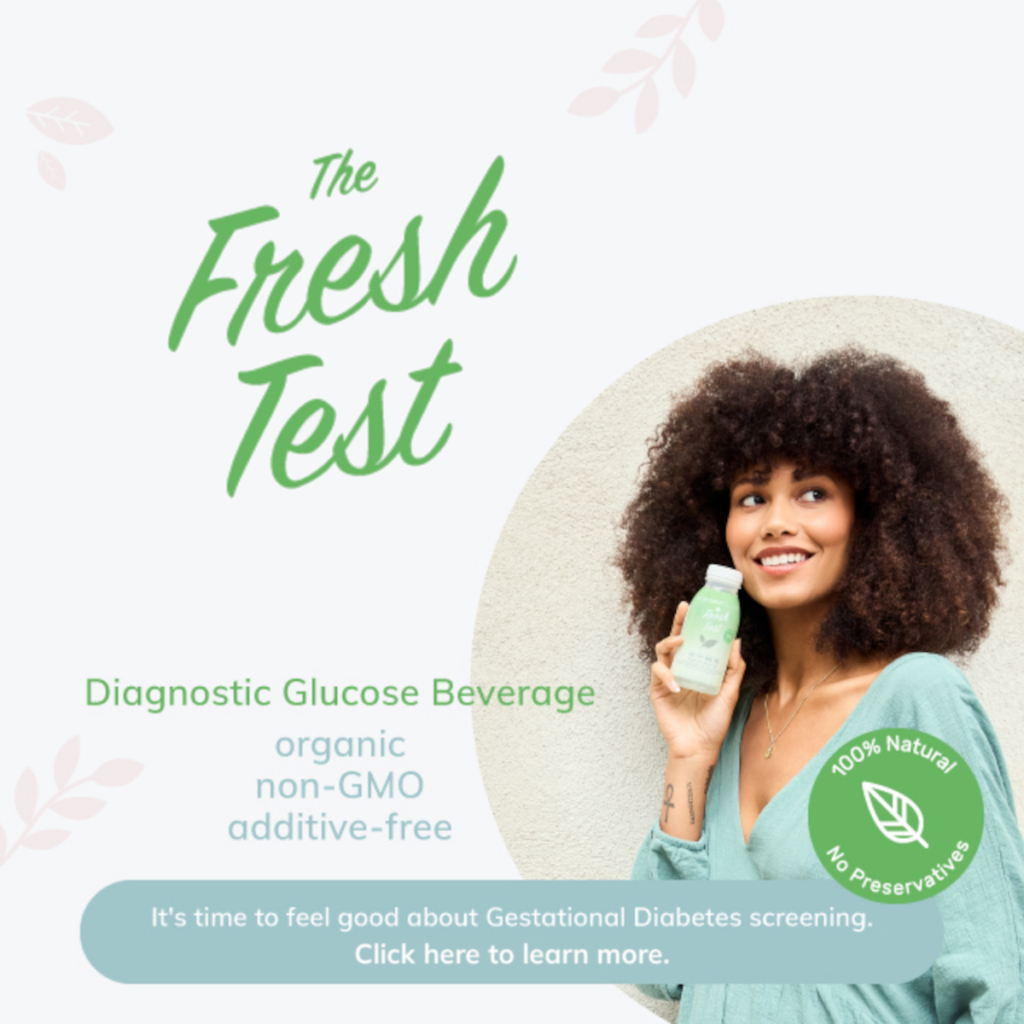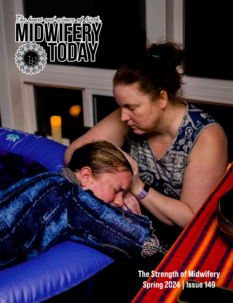
What Midwives Need to Know about Postpartum Depression
Editor’s note: This article first appeared in Midwifery Today, Issue 61, Spring 2002.
Subscribe to Midwifery Today Magazine
With the birth of my daughter nine years ago, my family seemed complete. Her birth was an event filled with a joy I never could have anticipated. Several months after delivery, however, and seemingly without warning, fulfillment turned to confusion, withdrawal and hopelessness. My weight loss was excessive, my sleep was disrupted, my memory was hazy and my beliefs about my competency turned to feelings of inadequacy as my mind and my body wrestled with each other in what appeared to be a daily battle of deteriorating forces. The constant struggle with self-destructive impulses overpowered me, until one year and four hospitalizations later, doctors gave my illness a name—postpartum depression.
I discovered through the process of treatment and recovery that I was not alone with this condition that caused me to question my sanity, a question I had never asked myself before. In fact, for nearly 15–20 percent of new mothers, childbirth is nothing less than a nightmare, as confusion, disorientation, memory impairment, agitation and anxiety threaten their stamina during the already stressful postpartum adjustment to motherhood.
The transition to parenthood is an experience of crisis proportion. So often we fail to prepare ourselves for the enormous emotional changes and physical demands that occur after a baby’s birth, particularly during the first year after delivery. New parents tend to revel in the ideals that society promotes about motherhood and childbirth, without accounting for the tremendous stresses that this joyous but life-changing event brings to the family.
Along with the exhausting demands of caring for an infant are the loss of time and the loss of freedom, along with a loss of familiar routine and way of life. Our availability for adult friendship changes, our needs for physical intimacy and our previously established patterns of relating to our spouses inevitably shift.
A woman may also believe that successful mothering succeeds on instinct only, without outside knowledge or influences, or that the relationship with her baby will be automatic and intense. Guilt and fear may interfere with her capacity to talk about the ambivalent feelings that are generally normal in this situation as she comes face to face with the discrepancies between her expectations and the reality.
So if a mother feels sad because the new baby creates so many unexpected alterations in her life, she may not think it’s appropriate to express her sadness. If she feels overwhelmed by changing rhythms and responsibilities, angry because she can’t even get to a shower or out of her pajamas, she withholds the permission she needs to say it or even think such a thing.
Besides the myriad feelings that surface, the tremendous chemical changes that occur around the time of delivery and in the months following predispose women to a variety of reactions. During pregnancy, hormonal levels elevate dramatically, particularly levels of progesterone and estrogen. They drop just as dramatically, often within hours to days of childbirth. In addition, the amount of endorphins (those substances responsible for feelings of well-being) produced by the placenta during pregnancy drop significantly after delivery.
Approximately one in five moms experiences diagnosable depression or anxiety in the year after giving birth. Half of these present at least two symptoms of clinical depression, such as rapid weight loss, sleep disturbances, memory loss, withdrawal and social isolation. The sleep disturbances associated with postpartum depression are distinctive. Despite extreme exhaustion, these women have difficulty sleeping even while their babies sleep. Along with these symptoms are feelings of inadequacy, an extreme sense of being overwhelmed, difficulty coping and fear of being alone.
Although some professionals previously thought that postpartum depression occurs only within the first month after childbirth, any woman is vulnerable during the first year after giving birth. In addition, weaning a baby and the return of menstruation are significant events that alter the biochemical balances in the body and can affect the timing of a postpartum depression.
While most of the symptoms of PPD are generally concurrent with “regular” depression, women in the first category are especially prone to feelings of guilt, maternal inadequacy and anxiety, which often results in distorted thinking. I’ve had many women, while in the throes of a postpartum depression, tell me quite frankly that their baby would actually do better with another mother. In addition, mothers with more significant depression tend to feel disengaged and disconnected from their infants, an experience often described as “going through the motions.”
Fortunately, postpartum psychosis—a biochemical crisis at the extreme end of the spectrum—is rare, occurring in one or two out of a thousand births. This potentially life-threatening condition requires immediate treatment to protect the safety of both mother and child. Some mothers have intrusive thoughts about hurting their baby that may indicate a loss of touch with reality. Among the emergency symptoms that necessitate immediate medical attention are hallucinations, delusions, sleep deprivation of more than 48 hours’ duration, and suicidal thoughts and impulses.
Although there is no exact way to predict the occurrence of postpartum depression, it is possible to identify the circumstances that put some women at greater risk for the onset of this illness. They include:
- Personal and/or family history of depression and/or bipolar disorder.
- Previous personal and/or family history of postpartum depression.
- Early history of trauma, abuse or alcohol use in the family.
- An unstable marriage.
- Isolation from family and friends.
- An unwanted pregnancy.
- Ambivalence about the maternal role.
- Ambivalent and/or negative feelings about the pregnancy.
- A difficult pregnancy, labor and/or complicated delivery.
While it is impossible to erase certain risk factors that predispose a woman to postpartum depression, recognition of these risks does serve as a valuable warning signal. Early diagnosis and treatment are crucial to recovery. Left untreated, postpartum depression often lingers on and can develop into more chronic, and possibly treatment-resistant, depression. Some women who breastfeed their babies hesitate to seek help out of fear that they will be required to discontinue breastfeeding if they begin the use of antidepressant medications. Recent studies show, however, that certain medications can be used relatively safely and effectively by breastfeeding mothers with no harm to their infants.
With a proper diagnosis that takes into account a woman’s physiological symptoms, psychological issues and responses to environmental stress, postpartum depression is a very treatable illness with a good prognosis. Generally, the use of medication in combination with psychotherapy restores the body’s biochemical balance and promotes the healing process.
Editor’s Note: It is important to remember that most of the depression around birth is caused by how birth is conducted. You as a practitioner have a lot of control over how women feel about their births. When you think about what Michel Odent says about the important first hour after birth and the birth itself and how the hormones work, please realize: This translates directly into mom’s emotions after birth. A disappointing birth, where a woman has no control over the rituals and protocols around her and even less control over the people around her, can lead to the blues. These blues can, in turn, lead to full-blown depression. Please protect and guard her birth experience as well as you can within whatever framework you must work. Always give a mother plenty of time to talk about the birth, especially if she has been disempowered. Our mission is to make birth circumstances normal so that mom starts off on a joyful path of motherhood.


















